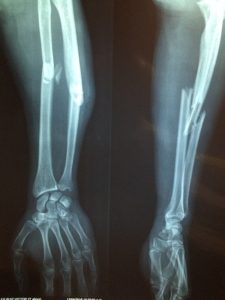For people with serious health problems, it is common for them to have new medical developments after their case has gone to the Appeals Council (AC). As a reminder, the AC is the organization that reviews decisions made by Administrative Law Judges (ALJ’s). If you saw an ALJ and lost, your next step would be the AC.
Old Standard Was Pretty Lax
Until recently, the AC was rather liberal in what new medical evidence (test results, xrays, etc) they would consider. Specifically, the AC would look at evidence that arose after the ALJ heard the case so long as that evidence related to what the ALJ considered. “Related” was a pretty broad term and it allowed claimants to submit almost anything to the AC.
New Standard Harder To Meet
As of May 1, 2017, however, that has changed. Now, the AC must believe that any evidence that arises after the ALJ decided hte case must have a reasonable probability of changing the outcome of the case. While this new language is still rather vague, it is clear that the AC is tightening their requirements for what new evidence they will examine.

Claimants Have Nowhere To Go While Awaiting AC Decisions

It makes sense to not hold ALJ’s responsible for considering evidence that did not exist at the time of their decisions. But, given the extremely long delays at the AC, their new requirements may prove unworkable. In essence, the AC is imposing a blackout on hearing what has happened to the claimant after the time of the ALJ’s decision. In the two years it takes for the AC to make a decision, a claimant’s health could worsen dramatically. If the AC won’t hear of these changes and the ALJ is powerless to act until she gets the case back from the AC, the claimant is stuck in no man’s land.
Another Approach?
I understand what the AC is trying to accomplish with their new regulations. But, I think that this is going to create a very serious hardship for claimants who are awaiting a decision from the AC. Perhaps there should be a third option, some way to send the case back to the ALJ without an AC decision. That would allow the ALJ to consider the new evidence in a timely fashion.
Do you think these new regulations are fair? How would you handle this issue? Let me know.


